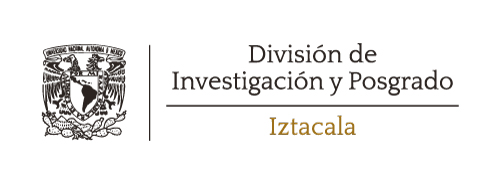
| Location within campus: | UBIMED, Lab 5, first floor. |
| Phone: | 5623-1333 ext. 39789 |
| Head of Laboratory: | Dr. Miriam Rodríguez Sosa Full Professor C rodriguezm@unam.mx |
| Researchers affiliated to the laboratory: | |
| Technicians affiliated to the laboratory: | M.C. Imelda Juárez Avelar imelda_juarez@yahoo.com |
| Research lines per researcher: | Study of the Involvement of Macrophage Migration Inhibitory Factor (MIF) in Inflammatory and Autoimmune Diseases. Study of Innate Immune Response in Chronic-Degenerative Inflammatory Diseases. Study of Innate Immune Response in Parasitic Diseases. |

Innate immune response and inflammation are the first line of defense against various pathogens, such as bacteria and parasites. However, alteration of the innate immune response or an exacerbated inflammatory response can trigger chronic degenerative inflammatory diseases such as cancer, arthritis, diabetes, lupus, among others. In our laboratory, we have focused on studying certain molecules of the innate immune response, such as the MGL receptor in the response against infection by the parasite Trypanosoma cruzi and in cancer. We have also studied the molecule MIF, which is a proinflammatory mediator with significant involvement in the innate immune response. Our work has contributed to establishing that MIF activates cells such as monocytes, macrophages, and dendritic cells, increasing their phagocytic and lytic capacity to eliminate pathogens such as Leishmania, Trypanosoma, Toxoplasma, and Taenia crassiceps. We have confirmed this activating function of phagocytic cells by using genetically deficient MIF mice (MIF-KO). However, the cell-activating characteristic and proinflammatory action that make MIF a constitutive element of antimicrobial defense significantly contribute to various pathologies associated with excessive inflammation and autoimmunity. In this regard, we have studied the role of MIF in arthritis, type 1 and type 2 diabetes, and recently in the genesis, development, and malignancy of cancer.

Mendoza-Rodríguez MG, Sánchez-Barrera CÁ, Callejas BE, García-Castillo V, Beristain-Terrazas DL, Delgado-Buenrostro NL, Chirino YI, León-Cabrera SA, Rodríguez-Sosa M, Gutierrez-Cirlos EB, Pérez-Plasencia C, Vaca-Paniagua F, Meraz-Ríos MA, Terrazas LI. (2020). Use of STAT6 Phosphorylation Inhibitor and Trimethylglycine as New Adjuvant Therapies for 5-Fluorouracil in Colitis-Associated Tumorigenesis. Int J Mol Sci. 20;21(6). pii: E2130. doi: 10.3390/ijms21062130. Impact Factor: 2.36/QX
Cotzomi-Ortega I., Rosas-Cruz A., Ramírez-Ramírez D., Reyes-Leyva J., Rodriguez-Sosa M., Aguilar-Alonso P. and Maycotte P. (2020). Autophagy Inhibition Induces the Secretion of Macrophage Migration Inhibitory Factor (MIF) with Autocrine and Paracrine Efects on the Promotion of Malignancy in Breast Cancer. Biology (Basel). 18;9(1). pii: E20. doi: 10.3390/biology9010020. Impact Factor: 4.42/Q1
Rodriguez T., Pacheco-Fernández T., Vázquez-Mendoza A., Nieto-Yañez O., Juárez-Avelar I., Reyes J. L., Terrazas L. I., and Rodriguez-Sosa M. (2020). MGL1 Receptor Plays a Key Role in the Control of T. cruzi Infection by Increasing Macrophage Activation through Modulation of ERK1/2, c-Jun, NF-кB and NLRP3 Pathways. Cells. 1;9(1). pii: E108. eISSN: 2073-4409 doi: 10.3390/cells9010108. Impact Factor: 5.656/Q1.
Margarita Medina-Buelvas D., Estrada-Muñiz E., Rodríguez-Sosa M., Shibayama M., and Vega L. (2019). Increased heart fibrosis and acute infection in a murine Chagas disease model associated with organophosphorus pesticide metabolite exposure. Sci Rep. 26;9(1):17539. doi: 10.1038/s41598-019-54218-7. ISSN 2045-2322 (online). Impact factor: 4.011/Q1.
Rodríguez-Escamilla JC, Medina-Reyes EI, Rodríguez-Ibarra C, Déciga-Alcaraz A, Flores-Flores JO, Ganem-Rondero A, Rodríguez-Sosa M, Terrazas LI, Delgado-Buenrostro NL, Chirino YI. (2019). Food-grade titanium dioxide (E171) by solid or liquid matrix administration induces inflammation, germ cells sloughing in seminiferous tubules and blood-testis barrier disruption in mice. J Appl Toxicol. doi: 10.1002/jat.3842. Online ISSN:1099-1263. Impact Factor: 3.065/Q2.

| Entry profile of potential thesis students: | Interns from the fields of Biology, Chemistry, Nursing, and related health disciplines. |
| Service Social Data: | Social Service: “Study of Immune Response Regulation in Chronic Degenerative and Parasitic Inflammatory Diseases.” Program Key: 2020-12/63-2665. Activities: conducting experiments in cellular and molecular biology, analyzing molecules, including cytokines and chemokines that regulate innate immune response in experimental models of inflammatory diseases, chronic degenerative conditions, or parasitic infections. |
